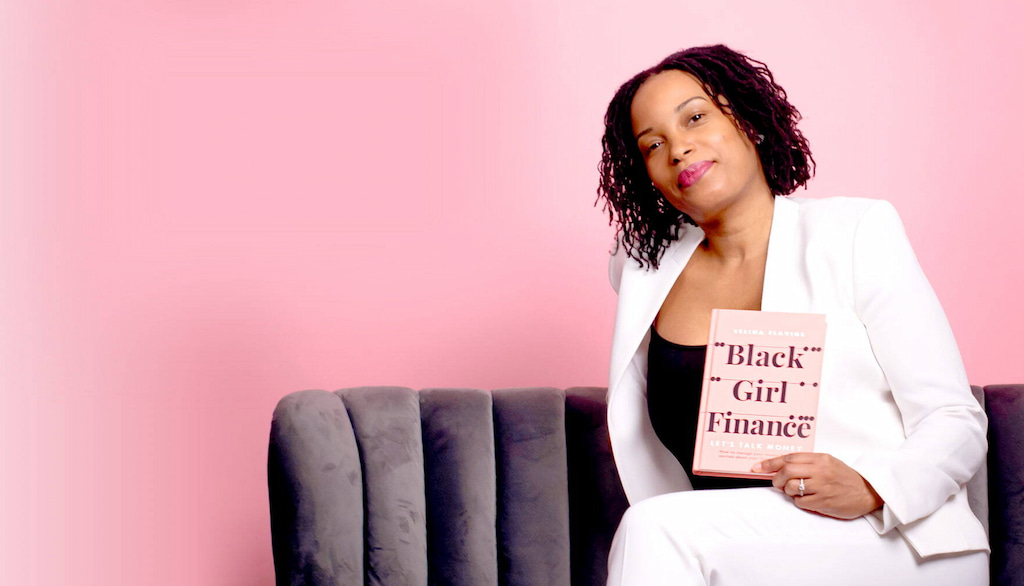
Personal finance
Looking after your finances, looking after your mental health
5th November 2025
29th July 2021

What is your financial priority? Whether you’re building up a rainy day fund, chipping away at your overdraft or keen to better understand your relationship with money, a wealth of resources are available. Here, we look at five financial priorities and pair each with recent money books that can provide more information.
If you want to take an honest look at your finances, including your debts, savings, credit score and pension, a good place to start is You’re Not Broke, You’re Pre-Rich by Emilie Bellet, CEO and founder of Vestpod, a platform for women to learn about money, or Black Girl Finance by finance coach Selina Flavius (pictured above, photo credit: Brand Yourself Photography). Both books have pages for working out and writing down financial goals, monthly budgets and your net worth (assets such as property minus liabilities such as student debt).
The two authors also talk openly about their own experiences with money. Emilie discusses her prior lack of knowledge on personal finance in spite of having a successful career in financial services, while Selina writes about her past debt and the techniques she used to clear it.
Beyond knowing the practical elements of money management, it’s important for many people to look at emotions and memories surrounding money. Open Up: The Power of Talking About Money by journalist and consultant Alex Holder covers everything from the relationship between money and happiness to the irrational but often heated arguments between housemates over splitting the cost of toilet paper.
By thinking about the dynamics in your friendship group, around splitting the bill or financial attitudes you’ve inherited from your family, you may find that it becomes easier to understand why you find saving difficult or why you spend more money if you’re upset or down.
The anxiety that some people feel about spending money is often less talked about than other money worries. It’s a trait described by psychologist Brad Klontz as ‘money vigilance’, something that author and brand consultant Otegha Uwagba identifies with and discusses in her book We Need To Talk About Money.
Throughout her book, which is part memoir and part cultural commentary, Otegha takes an unflinching look at how her attitude towards money has developed from childhood through to school and university, first jobs and freelancing. If you too tend to save out of nervousness, rather than with a goal in mind, her honest analysis and thorough research could be especially helpful for you.
If your aim is to earn more money, perhaps to afford a new car or more holidays with your family, you may want to think about starting a side hustle alongside your day job. This could be anything from selling clothes you no longer wear to helping people learn a second language, if you speak one. For ideas and tips, have a look at Side Hustle in Progress by Elizabeth Ogabi, founder of business advice platform For Working Ladies.
Go Fund Yourself by former management consultant Alice Tapper also has a practical section on earning more money, including pay rise and job application advice.
If you’ve cleared expensive debts and built up accessible savings for emergencies, you may want to think about the area of investing. One engaging and comprehensive guide is Own It! How our generation can invest our way to a better future by Iona Bain, author and founder of the Young Money Blog. Remember, with investments, your capital is at risk. Investment values can go down as well as up, so you could get back less than you invest.
Iona’s book covers property, pensions, stocks and shares and the importance of setting money aside for your future self.
The above article and books mentioned are intended as general information and do not constitute financial advice. You should take independent financial advice if you have any questions about your specific circumstances.

Personal finance
5th November 2025

Team Starling
5th November 2025

Personal finance
15th May 2024

Money Masters
11th December 2025

Money languages
11th December 2025

Money languages
11th December 2025